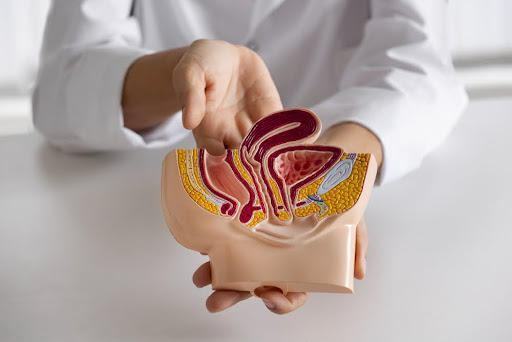Have you ever experienced heartburn or acid reflux and wondered if it could be something more serious? One possible cause could be a Hiatus Hernia, a condition that occurs when a part of the stomach pushes up into the chest through an opening in the diaphragm, known as the hiatus. While it is a common condition, it can lead to discomfort and complications if not managed properly. In this blog, we’ll explore the causes, symptoms, and treatment options for a Hiatus Hernia, and why it’s crucial to consult a hiatus hernia specialist doctor in Mumbai if you’re experiencing any related symptoms.
What is a Hiatus Hernia?
A Hiatus Hernia happens when the upper part of the stomach pushes through the diaphragm into the chest cavity. The diaphragm is a muscle that separates your chest from your abdomen and helps with breathing. The hiatus is a small opening in the diaphragm through which the esophagus passes before it connects to the stomach. Normally, the stomach remains below the diaphragm, but in cases of a Hiatus Hernia, part of the stomach bulges into the chest through this opening.
There are two main types of Hiatus Hernia:
Sliding Hiatus Hernia:
This is the most common type and occurs when the stomach and the lower part of the esophagus slide up into the chest through the hiatus.
Paraesophageal Hiatus Hernia:
In this less common but more serious type, part of the stomach pushes up alongside the esophagus, which can lead to a risk of the stomach becoming strangulated.
What Causes a Hiatus Hernia?
Several factors can contribute to the development of a Hiatus Hernia. The exact cause is often unclear, but some of the known risk factors include:
-
Weakness in the diaphragm:
Age-related changes or an injury can weaken the diaphragm, making it easier for the stomach to push through.
-
Increased pressure in the abdomen:
Obesity, pregnancy, heavy lifting, and frequent coughing can increase abdominal pressure and force the stomach upward.
-
Genetic predisposition:
Some people may be born with a larger than normal hiatus or a predisposition to Hiatus Hernia.
-
Chronic conditions:
Frequent coughing or straining due to constipation may also lead to the development of this condition.
If you’re experiencing symptoms, consulting a hernia specialist doctor in Mumbai is vital to understanding and managing your condition effectively.
Symptoms of Hiatus Hernia
Many people with Hiatus Hernia may not experience any symptoms, particularly in the case of small hernias. However, larger hernias can cause uncomfortable symptoms that affect the quality of life. Common symptoms include:
- Heartburn: The most common symptom of Hiatus Hernia is acid reflux or heartburn, as stomach acid moves back into the esophagus.
- Chest Pain: Some individuals may experience chest discomfort, especially after eating or lying down.
- Difficulty swallowing: A feeling of food getting stuck in the esophagus can be another symptom.
- Regurgitation: The sensation of stomach contents coming back up into the throat or mouth.
- Bloating and belching: Frequent bloating, belching, or discomfort in the upper abdomen.
It is important to consult a hernia specialist in Mumbai if you persistently experience any of these symptoms. Dr. Aparna Govil Bhasker, an expert in hernia surgeries, can provide an accurate diagnosis and recommend the best course of action.
How is a Hiatus Hernia Diagnosed?
Diagnosing a Hiatus Hernia involves a combination of medical history, physical exams, and diagnostic tests. Some common methods of diagnosis include:
- X-rays: A barium swallow X-ray can help visualize the hernia by showing the outline of the esophagus, stomach, and upper part of the small intestine.
- Endoscopy: A thin, flexible tube with a camera is inserted down the throat to examine the esophagus and stomach.
- Manometry: This test measures the pressure in the esophagus and assesses its muscle function.
- pH Monitoring: This test monitors the acidity in the esophagus to determine if acid reflux is related to the hernia.
Treatment Options for Hiatus Hernia
Treatment for Hiatus Hernia depends on the size of the hernia and the severity of symptoms. While lifestyle changes and medications can manage mild symptoms, surgical intervention may be necessary for more severe cases.
1. Lifestyle Changes
For individuals with mild symptoms, lifestyle changes can provide significant relief:
- Dietary adjustments: Avoiding spicy, acidic, or fatty foods that trigger heartburn can reduce symptoms.
- Weight management: Losing weight can help reduce abdominal pressure, which contributes to hernia development.
- Avoid lying down after meals: Staying upright for at least two hours after eating can prevent stomach acid from moving into the esophagus.
2. Medications
Medications are often prescribed to manage symptoms like acid reflux and heartburn. These may include:
- Antacids: To neutralize stomach acid and provide quick relief from heartburn.
- H2 Blockers: Medications that reduce the production of stomach acid.
- Proton Pump Inhibitors (PPIs): These drugs block acid production and help heal the esophagus.
3. Surgical Treatment
If lifestyle changes and medications fail to provide relief, or if complications such as strangulation occur, surgery may be recommended. Hiatus Hernia specialist doctors in Mumbai, like Dr. Aparna Govil Bhasker, specialize in surgical treatment for Hiatus Hernia. The surgery, known as fundoplication, involves wrapping the upper part of the stomach around the lower esophagus to prevent acid reflux and strengthen the hiatus. In some cases, the hernia itself is repaired during the procedure.
Take Control of Your Health with Dr. Aparna Govil Bhasker
If you’ve noticed signs of a Hiatus Hernia don’t be passive and wait for it to go awry. Complications can best be avoided by treating the problem as early as possible. Schedule your appointment today with Dr. Aparna Govil Bhasker, a leading hiatus hernia specialist doctor in Mumbai, who provides state-of-the-art hernia care with both personal attention and advanced treatment options—surgical and non-surgical. Whether you’re looking for lifestyle advice or considering surgery, Dr. Bhasker’s expertise ensures that you’ll receive the best care possible.
Reach out today for a consultation and make the first step towards wellness and better well-being!





